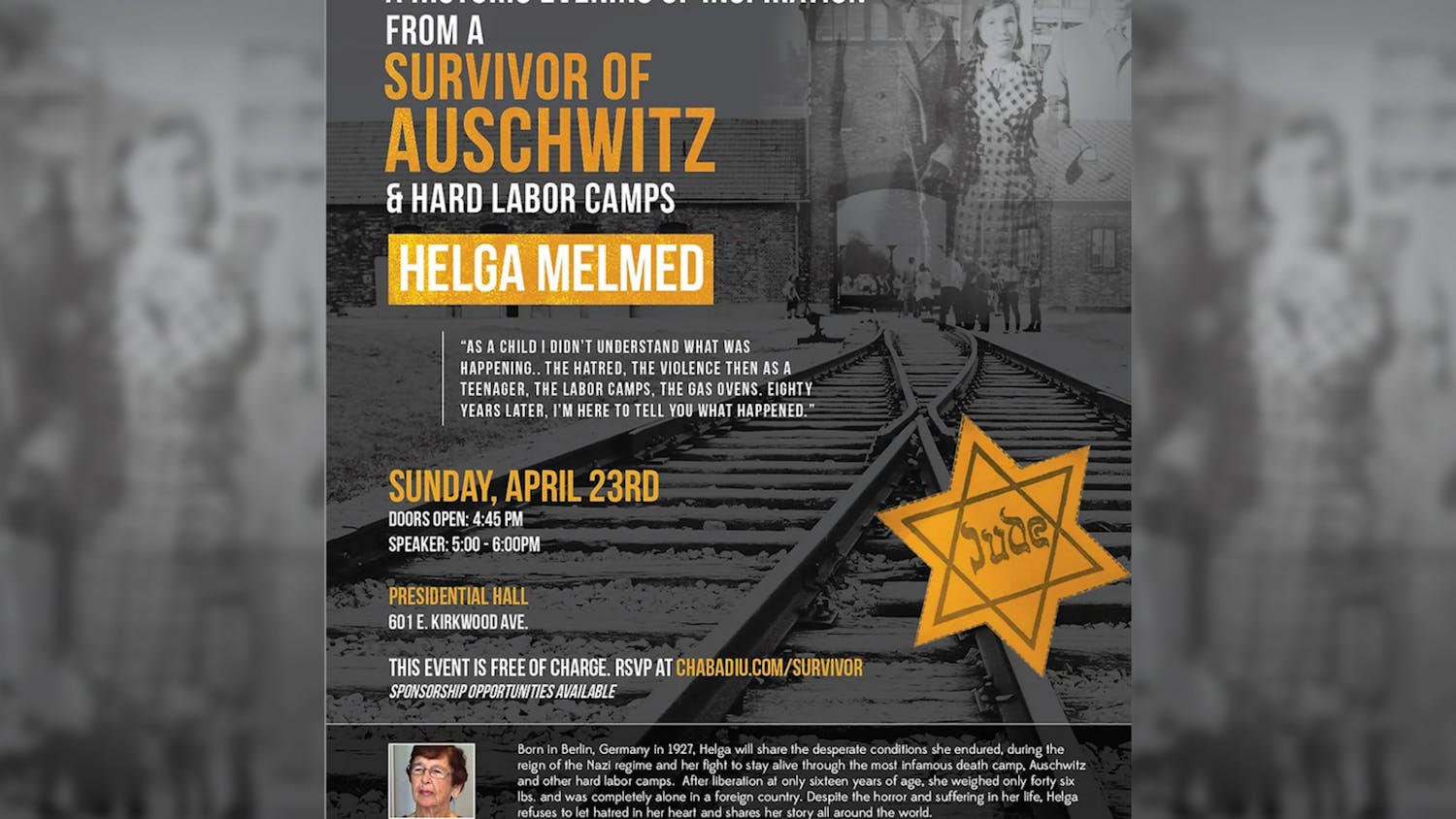The room filled with clapping and singing as the choir director raced up and down the aisles of the Buskirk-Chumley Theater shouting, “Bambelela! Bambelela!”
Theater patrons stood to their feet chanting, “Never give up! Never give up!” as the Bloomington Peace Choir belted out their South African-inspired song in honor of Martin Luther King Jr. Day on Monday during the City of Bloomington’s annual celebration.
“The church choir singing is among my favorite,” keynote speaker Hank Thomas said. “Y’all had ‘em rocking.”
Thomas is one of the original 13 Freedom Riders that rode interstate buses through the South in 1961 to protest racial segregation.
Recalling a fearful day in South Carolina, Thomas commanded a thick silence to fall over the audience.
“Mother’s Day 1961 is a day that will live in infamy in my mind forever,” he said. “Seven black and white Freedom Riders, along with 11 other unsuspecting passengers, were almost murdered by a Ku Klux Klan mob.”
The first place he was arrested on the freedom ride, Thomas said, was in Winnsboro, N.C.
He was forced off the bus and arrested, only to be released later that evening back at the bus — where a mob waited in the shadows for him to board.
Thomas said he would have been shot by police if he refused to leave the squad car, but what awaited him outside was not much better.
As he stepped out, Thomas said, the police car sped away in a hurry, and the mob began to approach him.
He said he thought he might be able to outrun the mob.
“As I started to run a man pulled up in his car, a black man and his son. Said, ‘Son, jump in and get down on the floor and stay there,’” Thomas said. “And he took me to Columbia, South Carolina, about 45 miles away.”
Reunited with the other Freedom Riders, Thomas once again faced another mob at the Aniston, Ala., bus stop.
About 50 to 60 people had gathered, he said, yelling and banging on the bus after it pulled in.
The bus driver locked the doors so the mob couldn’t get in, and he abandoned the vehicle.
Thomas joked that it must have been the end of the driver’s shift, but no one in the audience laughed.
He said another driver climbed in and tried to drive away.
But the tires of the bus had been slashed, and vehicles to the front and back of the bus did not allow the bus to drive faster than 15 miles per hour.
After a few miles, the tires had gone completely flat and came to a stop in front of a country store where another mob gathered, he said.
“Again this bus driver jumped out the bus,” Thomas said. “After a while they worked themselves into such a frenzy, somebody got an incendiary device that we learned later on came from the army base in Fort McClellan, shot it in the back of the bus through one of the broken windows and within seconds the bus started burning in the rear, filling up with noxious smoke.”
As the smoke got blacker and blacker, Thomas, 19 years old at the time, said he contemplated suicide and thought it better to die on the bus than to be killed by the mob.
He tried to take a big breath of smoke to put himself to sleep, but failed.
While the mob held the doors shut so no one could escape, the back of the bus exploded, giving everyone on the bus an exit.
As Thomas escaped the burning bus, someone from the crowd asked him if he was all right and then struck him on the head with a baseball bat.
It wasn’t until Thomas scrambled behind a highway patrolman who had been present but passive to the whole scene that the mob ceased to pursue him.
The patrolman shot his gun in the air and said the mob had had enough fun.
But that was not the end of the ordeal.
After Thomas and the other Freedom Riders had been transported to the hospital for smoke inhalation, the mob followed, demanding they be released to them or they would burn the hospital to the ground.
“That was Alabama 1961,” Thomas said. “That was the American South that I grew up in.”
When he boarded that bus 50 years ago, he said he was pursuing a dream of equality.
“After 50 years, that dream of old has not been tarnished and it has lost neither its tone nor its tint,” Thomas said. “It still stands glimmering through the veils of yesteryear. We the Freedom Riders, we saw something wrong, and we done something about it.”
Original Freedom Rider recalls protests

Get stories like this in your inbox
Subscribe




